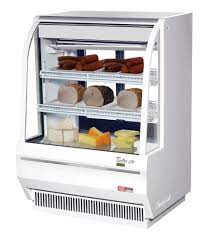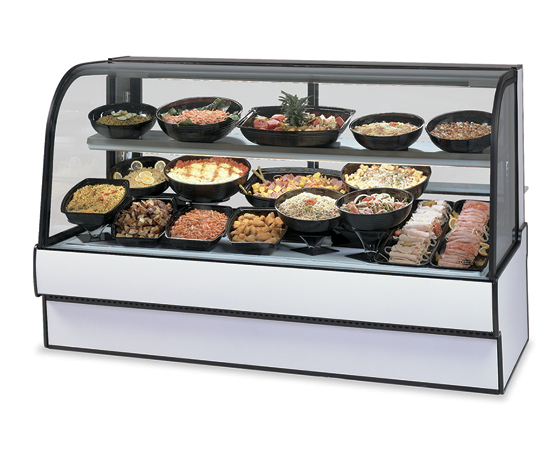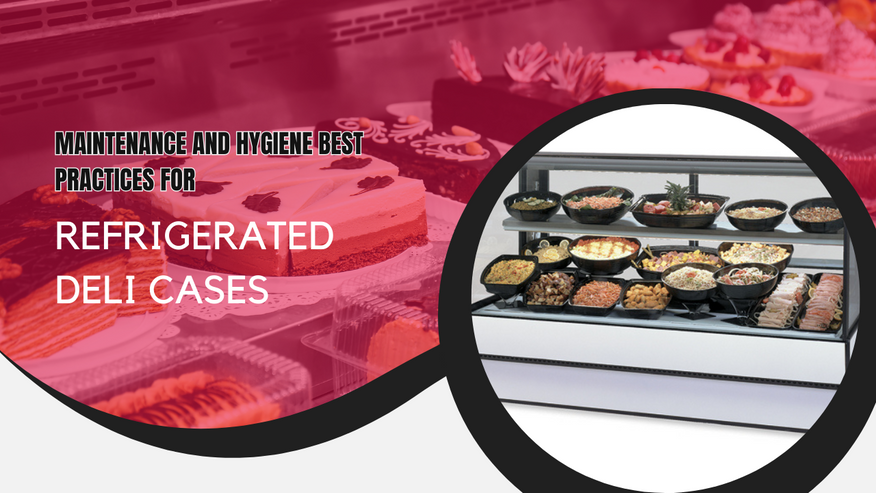Feb 14th 2024 - Team Member
Maintenance and Hygiene Best Practices for Refrigerated Deli Cases
In the bustling environment of commercial kitchens, refrigerated deli cases play a crucial role in preserving the freshness and safety of perishable items such as deli meats, fresh meats, and other food products. Maintaining these units properly is essential for ensuring food safety, reducing energy costs, and enhancing the customer experience. This comprehensive guide outlines best practices for the maintenance and hygiene of refrigerated deli cases, incorporating essential long-tail keywords to provide a thorough understanding of this topic.
Importance of Regular Cleaning and Maintenance
Daily Cleaning Routine

- Exterior and Interior Surfaces: Use a soft cloth and a mild cleaning agent to wipe down the exterior and interior surfaces, including glass panels and Clean Shelves, to maintain visibility and hygiene.
- Food Contact Surfaces: Regularly sanitize surfaces that come into contact with food to prevent cross-contamination and the growth of harmful bacteria.
- Proper Airflow: Ensure that the unit has proper airflow around it to prevent temperature fluctuations and maintain consistent temperatures.
Turbo Air TCDD-36H-W(B)-N 36.5"W Refrigerated Deli Case
Weekly and Monthly Maintenance

- Temperature Monitoring: Regularly check the unit to ensure it maintains proper temperatures for both cold food and hot food items, preventing spoiled food and ensuring food safety.
- Humidity Levels: Monitor and adjust humidity levels to prevent ice buildup and maintain the quality of perishable items.
- Condenser Coils and Evaporator Fans: Clean critical components such as condenser coils and evaporator fans to ensure optimal temperature control and energy efficiency.
Federal Industries SGR3648CD 36.13"W High Volume Refrigerated Deli Case
Hygiene Best Practices for Food Safety
- Food Safety Compliance: Adhere to food safety standards by storing all food products, including Ground meats and Leftovers, at their optimal temperature to prevent the growth of harmful bacteria.
- Product Rotation: Implement a first-in, first-out (FIFO) system to ensure the freshness of deli items and reduce the risk of serving spoiled food.
- Personal Hygiene: Encourage staff to practice good hygiene, including frequent handwashing and using gloves when handling food, to maintain the cleanliness of food contact surfaces.
Professional Servicing and Energy Efficiency
- Routine Maintenance: Schedule routine maintenance checks with a professional technician to inspect and service the refrigeration system, ensuring it operates at optimal temperature and efficiency.
- Energy-Efficient Display Cases: Consider investing in Energy-efficient display cases to reduce operational costs and minimize environmental impact.
- Regular Inspection of Components: Regularly inspect and replace worn-out components to prevent temperature inconsistencies and ensure the longevity of the unit.
Cleaning Procedures for Enhanced Hygiene
- Cleaning Shelves and Bins: Remove shelves and bins for thorough cleaning with hot water and soapy water to remove any residue or food particles.
- Drainage System: Check and clean the drainage system to prevent water buildup and potential contamination.
- Sanitization: Use an appropriate cleaning agent to sanitize all surfaces, especially those in contact with food, to maintain food safety standards.
Conclusion
Proper maintenance and hygiene of refrigerated deli cases are essential for ensuring food safety, enhancing customer satisfaction, and reducing energy and operational costs. By adhering to regular cleaning schedules, monitoring temperature and humidity levels, and performing routine and professional maintenance, businesses can ensure their refrigerated display cabinets remain efficient and effective in preserving the quality of deli items. Keeping these best practices in mind will help maintain a safe and efficient environment for storing perishable items in commercial kitchens.
For more insights on maintaining commercial kitchen equipment and ensuring food safety, visit https://www.culinarydepotinc.com/.

